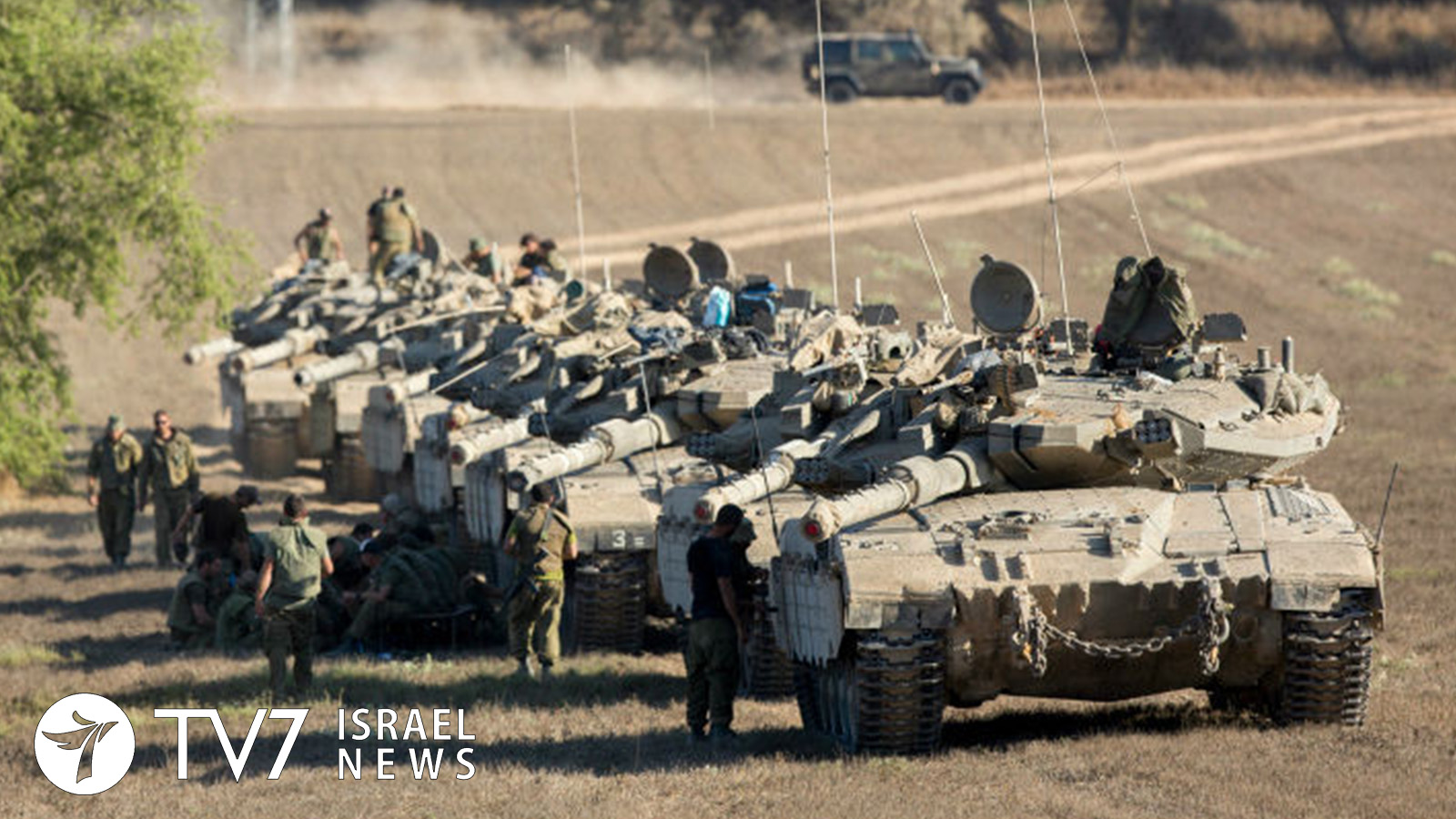An Egyptian delegation of intelligence officials concluded a visit to Tel Aviv late-last night, as part of Cairo’s mediation-efforts to alleviate tensions and prevent a possible conflagration between the Islamist organizations in the Gaza Strip and the Jewish State. During last night’s meeting, the Egyptian delegation conveyed a series of messages from Hamas to the Israeli leadership.
According to a Hamas official, “the message the Egyptians conveyed to Israel is clear: Do not use the Gaza Strip as a PR tool for political purposes ahead of the upcoming elections.” The Hamas official, who spoke to TV7 on condition of anonymity, stressed that “Hamas is not interested in an escalation, but (it) is ready to protect the residents in Gaza, and has the tools to make Israel… regret any military adventure.”
While TV7 was not able to immediately verify the details of the Israeli response conveyed through their Egyptian counterparts to Hamas; several Israeli and Arab media reports claim that Israel has threatened the Islamist group that “it (will) face widespread military action if it does not rein in violence along the country’s border with the Gaza Strip.” Although Israel has reportedly agreed to amend the terms of the current fragile cessation-of-hostilities arrangement – in accordance with Hamas demands – due to the deteriorating humanitarian situation in the enclave, the Jewish state’s position has been made clear that “a wide-scale military operation in the Strip would be inevitable” if the internationally recognized terror group persists with border violence.
Meanwhile, a Cairo official told TV7 that the Egyptian delegation is due to return to Gaza tomorrow for an additional meeting with Hamas officials.
It is important to note that amid a close elections campaign in Israel, which largely focuses on security related issues; the IDF published a report on the so-called “March of Return” in the Gaza Strip earlier this week, amplifying the role Hamas plays in the violent riots. According to the report, since the 30th of March 2018, some half a million peoples have joined the violent protests, with the number of Palestinians congregating at different points along the border said to be between a few thousand and 45,000 each day.
Hamas, which claims the protests are ‘an independent popular uprising,’ is clearly less innocent – according to the report’s findings. Among others, Hamas provides all logistical services to the protesters, including electricity, free wireless internet and network connections, as well as food and beverages. The IDF accused Hamas of “allocating explosive materials and other military means” and distributing them to protesters to sabotage the Israeli implementation of security infrastructure along the border.
Furthermore, the IDF noted that some 1,300 rockets and missiles have been fired from the Hamas-run enclave since the beginning of the border-protests, last year, with most launches conducted on Friday’s or Saturday’s “immediately after mass violent riots.” In addition to the rocket-fire, Palestinian Islamist have launched thousands of balloons with either incendiary or improvised explosive components attached, which caused extensive damage, including 2,000 separate fires that resulted in over 35,000 dunams – approximately 8,500 acres – of land being burnt across Israel’s south.
The Israeli military report on the Gaza protests came after the United Nations Human Rights council presented a report of its own, in which it focused on condemning Israel for using it termed as – “deadly disproportionate force” – against the Gazan demonstrators. The report by the UN Human Rights Council, an organization which has a history of disproportionate bias against the Jewish State, was immediately dismissed by Jerusalem as yet another chapter in the council’s “theater of the absurd.” Following Israel’s outright rejection of the U.N. report, Human Rights Council Chief Michelle Bachelet responded during a session -that yet again – sought to condemn Israeli conduct. He said: “The end of this month will mark one year since the start of demonstrations which — as the Council’s commission of inquiry reported — have been met with deadly disproportionate force by the Israeli security forces, leading to a very high toll of killings and injuries. I was disappointed to see the immediate dismissal of that report by Israel, without addressing any of the very serious issues raised. All parties concerned should exercise restraint as the date of March 30 approaches.”
It is important to note that the United Nations Human Rights Council has issued more condemning reports and resolutions against Israel than any other country in the world, including Syria, Iran and even Yemen and north Korea.
